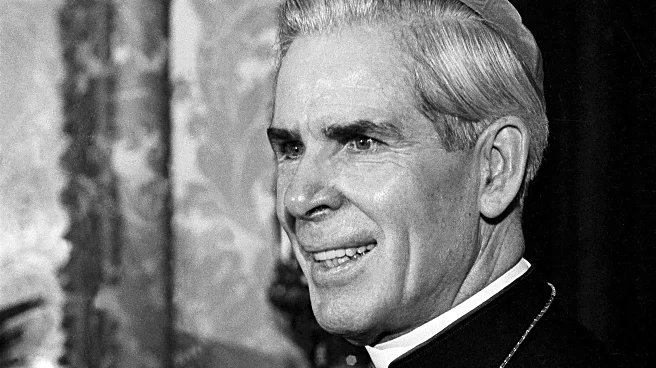What is the story about?
What's Happening?
The third annual Caribbean Music Awards took place at Brooklyn's Kings Theater on August 28, ahead of a BET telecast on September 12. The event celebrated the biggest artists and records in Caribbean music, featuring over 40 categories across genres such as reggae, dancehall, soca, zess-steam, konpa, calypso, gospel, and R&B. Shenseea emerged as the night's biggest winner, securing five awards, including dancehall album, song, and collaboration of the year. Vybz Kartel won three awards, including male dancehall artist of the year. Lady Lava received the inaugural zess-steam artist of the year award. The ceremony included performances from artists like Elephant Man, Full Blown, Lady Lava, Lila Iké, and Romain Virgo.
Why It's Important?
The Caribbean Music Awards highlights the growing influence and diversity of Caribbean music on the global stage. By recognizing artists across various genres, the awards foster cultural appreciation and provide a platform for emerging talents. The event's success underscores the importance of Caribbean music in shaping contemporary music trends and its impact on international audiences. Artists like Shenseea and Vybz Kartel continue to push boundaries, contributing to the genre's evolution and increasing its visibility worldwide.
What's Next?
Following the awards, artists and industry stakeholders may leverage their wins to expand their reach and influence. The recognition could lead to increased collaborations and opportunities for Caribbean artists in international markets. The awards may also inspire more events celebrating Caribbean music, further promoting its cultural significance. Fans and industry professionals will likely anticipate future projects and performances from the award-winning artists.
Beyond the Headlines
The Caribbean Music Awards not only celebrate musical achievements but also highlight the cultural and social impact of Caribbean music. The event serves as a reminder of the region's rich musical heritage and its role in promoting cultural diversity. As Caribbean music continues to gain popularity, it may influence other genres and contribute to a more inclusive music industry.

















